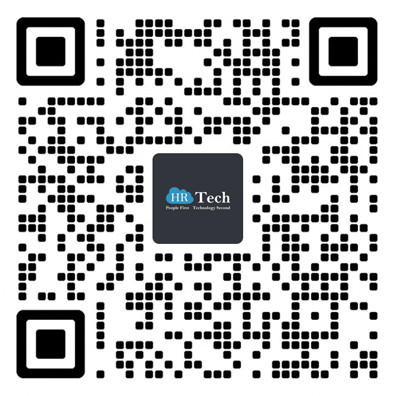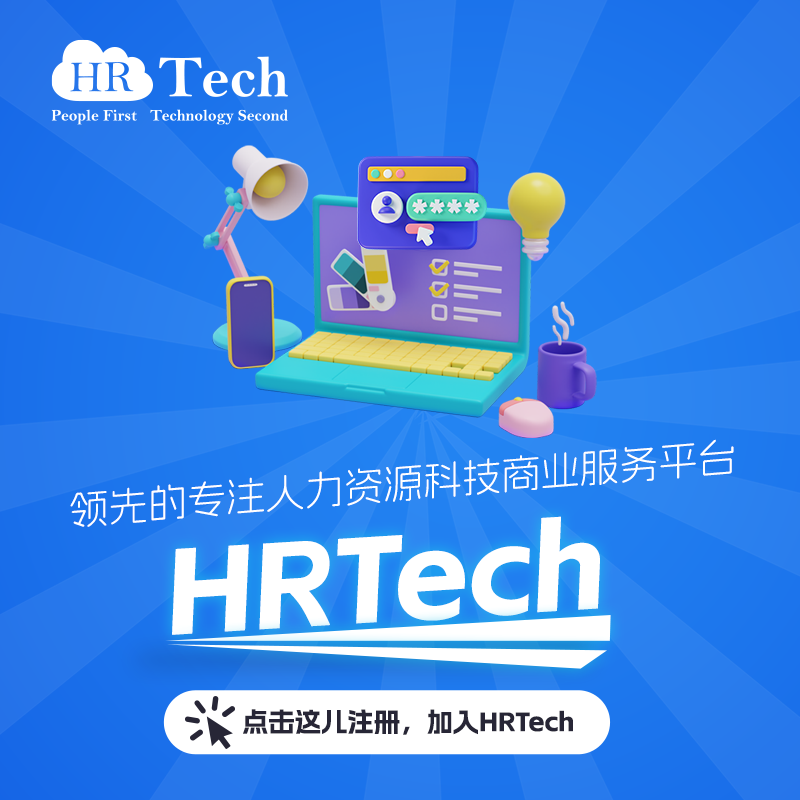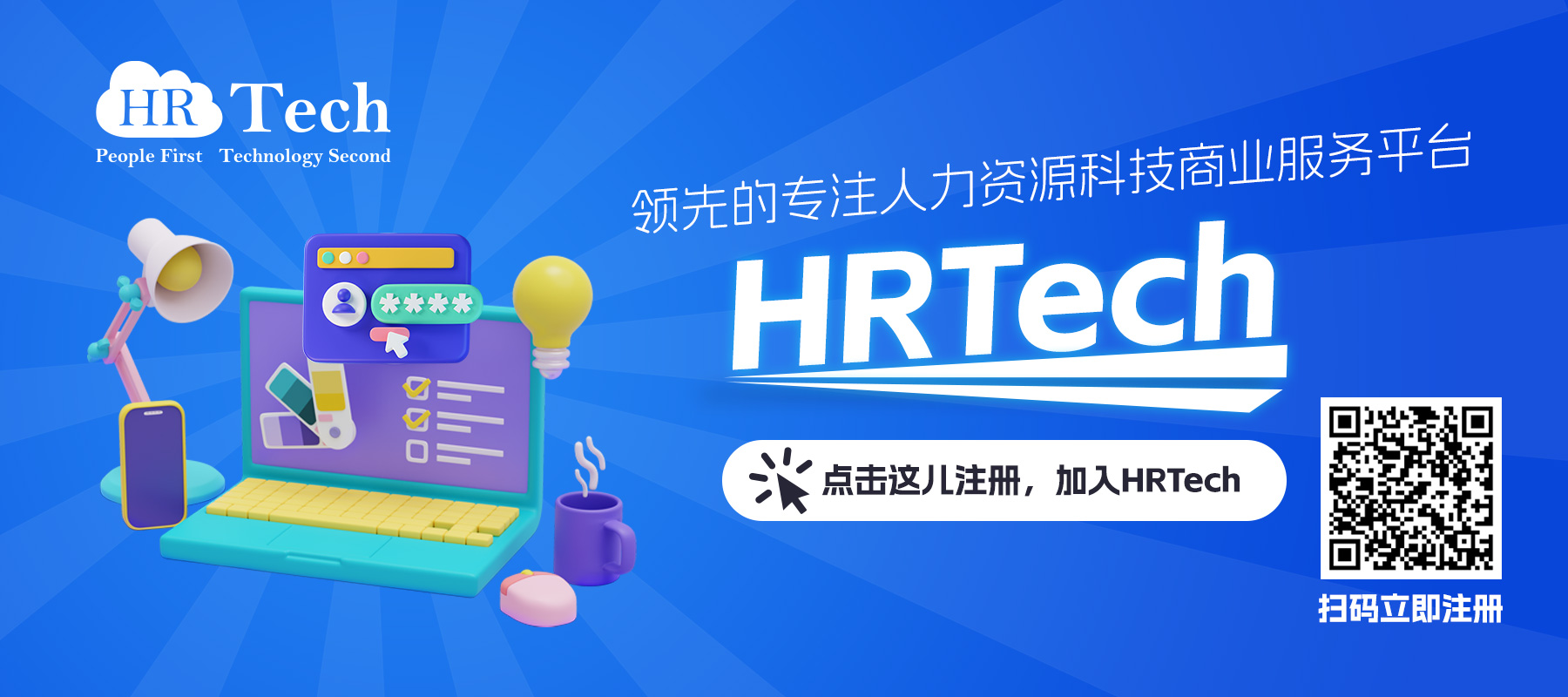-
 资讯
资讯
学生社交平台AlmaMapper收购招聘初创VibrantMinds
近日,位于艾哈迈达巴德的高校社交与学习平台AlmaMapper发布公告称,已收购校园招聘初创VibrantMinds,这将使AlmaMapper把业务扩展至全印度,并与300多家企业建立联系。
AlmaMapper由毕业于Nirma大学的Kaul和Chandra Mauli Sharma共同创立于2014年。它是一个连接教师、校园和学生的免费多功能平台,可以发现学校、校友、笔记、课程、活动、工作和实习,目前已有80多万名学生注册。
AlmaMapper还有一个购物平台,为学生提供特价产品和服务。并为学校提供校友管理系统、校园推广、在线报告生成和分析面板、直接入学指南等服务。
2016年4月,AlmaMapper获得Oswal Techno Ventures LLP投资的40万美元(2600万卢比)种子轮资金。
本次被收购方VibrantMinds位于浦那,由Vikas Krishna Shinde创立于2014年6月,提供校园招聘、人才评估和简历制作等服务,与印度各地的高校和IT培训公司联系密切。
近期,印度招聘领域的交易不少。3月,孟买的分析招聘服务公司PMaps Assessment获得一批浦那投资者提供的天使投资。2月,班加罗尔的招聘初创Belong.co完成1000万美元(6.7亿卢比)的B轮融资,投资者是红杉资本印度和经纬印度。
2016年11月,招聘门户iimjobs.com获得早期投资公司India Quotient领投的A轮融资200万美元。同月,招聘初创DoSelect也获得了TV Mohandas Pai的家庭基金3one4 Capital和Mumbai Angels提供的种子轮投资。
社交巨头Facebook也在去年11月进入招聘领域,在网页上添加了工作标签,对职业社交网站LinkedIn形成潜在的挑战。
(本文部分内容来源于VCCircle)
编译:Rain
来源:竺道
-
 资讯
资讯
在线教育平台 CreativeLIVE 融资 2500 万美元,将切入企业培训市场
根据国外教育科技媒体 EdSurge 的消息,在线教育平台 CreativeLIVE 近日获得了由 GSV Acceleration 领投的 2500 万美元的融资。CreativeLIVE 的上一轮融资在 2015 年,为 2150 万美元。除了完善现有的直播和视频课程服务之外,CreativeLIVE 还计划和企业合作,切入员工培训服务领域。
事实上,在此之前,CreativeLIVE 就已经和 Adobe,Microsoft 和 GoPro 进行合作,除了开放平台课程外,CreativeLIVE 也会为这些企业提供定制化的课程内容。在 CreativeLIVE 的创始人 Chase Jarvis 看来,传统的在职培训过于统一,对于员工的个性化需求难以满足,而 CreativeLIVE 要解决的就是这个问题。
综合来看,CreativeLIVE 能够切入企业培训的前提优势在于:
精准捕捉需求:一方面,CreativeLIVE 平台上的课程多侧重于应用,如摄影、视频、音乐等创意学科,除了应用类课程外,平台同时还提供一些领导力提升的课程,因此,CreativeLIVE 能够同时涵盖员工技能和综合素质提升两方面的课程,符合企业进行员工培训的需求;
课程系统化:CreativeLIVE 不支持用户自行上传课程,所有课程均由平台自己邀请行业内专家进行录制、独立制作并发布,因此课程内容将更加系统化,课程设计和安排上更加优化,企业或个人按需选择即可;
课程独立制作经验为加分项:前面提到, CreativeLIVE 平台上的课程均为团队独立制作完成,因此,在课程设计和制作以及专家资源方面的优势让 CreativeLIVE 综合客户需求进行个性化课程定制成为可能;
对于 CreativeLIVE 平台而言,切入企业培训领域一方面意味着以企业服务为入口,平台的用户量将进一步提升,另一方面,出于企业创新优势和竞争力的考虑,员工培训对于企业而言是刚需,因此,较之于个人,企业用户的粘性相对较高,此外,基于服务企业用户的经验,平台进行课程优化的成本也会降低。
此前,CreativeLIVE 主要面向 C 端用户提供在线教育的付费服务,区别于传统的“先付后看”,CreativeLIVE 对于实时观看的课程并不收费,付费只针对回看课程或下载课程视频这两类需求。
记者曾经报道过的云学堂是国内一家针对企业培训提供教育服务的平台,在今年 4 月获得了 2200 万美元的融资。
本文参考了多个信息来源:www.edsurge.com,如若转载,请注明出处:http://36kr.com/p/5075882.html
-
 资讯
资讯
IBM 宣布终止远距工作制度,影响上万人
【Technews科技新报】蓝色巨人 IBM 虽然是百年老店,但一直勇于顺势而为,成为职场文化的改革者,譬如打破女性职场天花板,弹性工作型态也让女性经理人数为业界标竿,在云端与协作环境成熟前,就鼓励员工远距工作,但是这几年 IBM 又再次面临转型关头,传出纽约总部突然发出最后通牒,要求员工离开家里回到办公室,不然就离职。
华尔街日报 (WSJ) 报导,IBM 营收已经连续 20 个季度下滑,股东对调升CEO Ginni Rometty 薪酬感到不满。IBM 远距工作制度已经实施几十年,这次突然宣布终止,IBM 说法是要加强合作与加速工作速度。IBM 全球有 38 万名员工,受影响的部门估计会是 Watson、软件开发、数位行销、设计,这几个部门员工有上万人。
过去 IBM 为了要推广自家产品,鼓励远距工作,以身作则,且雇用研究机构大赞远距工作的好处,IBM 曾经夸口公司内远距工作的比例高达 40%。IBM 也不是第一家把员工 call 回来的大型企业,2013 年 Yahoo 也做了同样的决策,当时也是备受批评。
IBM 发言人没有回避问题,表示现在公司领导人对工作的要求有变,譬如公司现在在重建设计与数位行销部门,要求他们对及时资讯与客户回馈要做出快速反应,因此回到传统办公室环境工作比较能达成任务。同时强调大部分远距工作的员工已选择回到办公室。
报导指出,由于大部分选择远距工作的员工住家离办公室很远,要回到办公室工作不是当机立断的事,IBM 给远距工作的员工 30 天时间决定要回去还是离职,行销部员工可以选择搬到亚特兰大、奥斯汀、波士顿、北卡的罗里、纽约或旧金山的办公室,不然就离职。
不是每个员工都有办法突然举家迁移到几百公里远的办公室工作,像是一名在 IBM 工作 15 年,有 12 年都在家工作的行销经理表示,他家住在佛罗里达州坦帕市,他一直认为自己是远距工作的成功案例,尽管他的团队分散在 3 个州,但透过 IBM Sametime 即时通讯语音和视频聊天软件,仍能保持很好的互动与工作效率。
但他也承认,选择在家工作是有代价的,因为这使他没办法晋升,但这是他的选择,且已经拒绝 IBM 这次的召回告知,决定自己在佛州成立行销公司。
另外一名在印第安纳州从事 IBM 移动软件与服务行销工作的员工表示,她的产品就是卖给无法在办公室工作的业态,譬如零售业、财务规划或医生,选择远距工作已经 7 年,公司要她搬到纽约办公室工作,虽然 IBM 会支付搬家费用以及根据城市生活水准调升薪资,但她要带着一家 3 口搬到纽约,直言根本负担不起。她已经找到新工作,为芝加哥软件公司做产品行销,办公地点仍然在家。
研究远距工作为企业提供策略的德州大学教授认为,其实 IBM 会让员工远距工作,不是什么冠冕堂皇的理由,而是为了省钱,省下办公空间,省下房地产租用支出,这次会决定召回员工,是发现根本省不了多少钱。还有另一说法是,这是一个裁员的高明手段,逼无法立即搬家的员工自动离职。
(首图来源:Flickr / IBM FBCC By 2.0)
来源:TechNews
-
 资讯
资讯
【HRTechChina专稿】2017年04月人力资源科技投融资小结
2017年04月人力资源科技投融资小结
公司
国别
轮次
金额
领域
投资者
报道链接
魔方招聘
国内
B轮
6500万人民币
招聘
天成资本领投
http://www.hrtechchina.com/16745.html
实习僧
国内
A轮
1000万人民币
招聘
翊翎资本领投
http://www.hrtechchina.com/16684.html
辈出科技
国内
A轮
数千万人民币
招聘
华睿资本和九元资产
http://www.hrtechchina.com/16725.html
GetLinks
泰国
A轮
数额不详
招聘
Axis Capital等领投
http://www.hrtechchina.com/16561.html
HackerEarth
印度
450万美元
招聘
DHI Group领投
http://www.hrtechchina.com/16656.html
Beamery
伦敦
A轮
500万美元
招聘
Index Ventures领投
http://www.hrtechchina.com/16636.html
Teamable
旧金山
A轮
500 万美元
招聘
True Ventures领投
http://www.hrtechchina.com/16645.html
Swingvy
东南亚
110万美元
人力资源管理
Big Basin Capital等领投
http://www.hrtechchina.com/16706.html
EngageRocket
新加坡
天使轮
32.2万美元
人力资源管理
http://www.hrtechchina.com/16704.html
萝卜猎手
国内
天使轮
1000万人民币
背调
安托信和薛蛮子
http://www.hrtechchina.com/16605.html
法驴
国内
Pre-A轮
800万人民币
在线法律
个人出资
http://www.hrtechchina.com/16690.html
嗨团建
国内
A+轮
3000万人民币
团建
华盖资本领投
http://www.hrtechchina.com/16668.html
爱享聚
国内
天使轮
数百万人民币
团建
http://www.hrtechchina.com/16565.html
云学堂
国内
B轮
2200 万美元
在线培训
SIG领投
http://www.hrtechchina.com/16623.html
简单报销
国内
战略投资
报销
Recruit
http://www.hrtechchina.com/16609.html
礼舍
国内
Pre-A轮
4000万元人民币
员工福利
王刚
http://www.hrtechchina.com/16716.html
Hibob
英国
A轮
1750万美元
福利保险
Battery Ventures领投
http://www.hrtechchina.com/16749.html
Huddly
挪威
B轮
1000万美元
视频会议
http://www.hrtechchina.com/16760.html
Gladly
旧金山
C轮
3600万美元
CRM
GGV领投
http://www.hrtechchina.com/16722.html
Bizzabo
纽约
A轮
650万美元
CRM
http://www.hrtechchina.com/16584.html
Gladly
美国
C轮
3600万美元
云客服
GGV领投
http://www.hrtechchina.com/16720.html
Qumulo
西雅图
C轮
3000万美元
云存储
北极光创投领投
http://www.hrtechchina.com/16567.html
Reltio
加州
C轮
4000万美元
云存储
NEA领投
http://www.hrtechchina.com/16686.html
收购
收购方
被收购方
金额
意义
Oracle
Moat
尚未透露
想要通过这一收购,来创造“世界上最全面的市场营销数据和分析云平台”
http://www.hrtechchina.com/16698.html
Gartner
CEB(SHL)
26亿美金
从而拓展公司的商业调研服务
http://www.hrtechchina.com/16588.html
VMware
Wavefront
未透露
满足公司把监控功能往各大云平台和容器内应用程序延伸的需求
http://www.hrtechchina.com/16680.html
作者:於丹 转载请备注文章出处
2017年04月,HRTechChina共收录了23家人力资源科技行业投融资信息以及1家收购信息。投融资信息分别为:国内10家,国外13家。同时,编辑又把人力资源科技行业再进行领域细分,本月收录的细分领域涉及:招聘;人力资源管理;在线培训;CRM;云存储;员工福利;在线法律等几大类。
国内招聘领域方面,魔方招聘正式对外宣布,公司已获得由天成资本领投,考拉基金、协立投资跟投的6500万人民币B轮融资。魔方招聘通过全网收集简历的形式,利用大数据技术,将求职简历与企业所需招聘岗位进行匹配,直接为企业推荐求职者到场面试,并按结果付费。
公司曾于成立之初获得过三行资本的近千万元天使轮融资;去年初获得由考拉基金领投,三行资本、1898创投基金跟投的4000万元A轮融资;去年年底完成5000万元A+融资,由协立投资,上海联创领投,拉卡拉创投,黑马基金跟投。
辈出科技4月份召开发布会宣布获得数千万人民币A轮融资,投资方为华睿资本和九元资产。同时,辈出科技公布了他们面向HR和广大求职者的两款产品——“辈出网”和“辈出诚聘”。
辈出成立于2016年4月,主要面向服务B端HR群体、C端求职者用户,并推出移动招聘、雇主品牌、人才管家、简历推荐等产品,力求通过人工智能技术提供精准人才推荐和招聘服务。
实习僧近期透露,他们已经完成 1000 万元 A 轮融资,由翊翎资本领投,投后估值 1 亿人民币。A 轮之前,实习僧曾在去年 3 月拿到了 100 万元人民币的天使轮投资,投资方为英菲尼迪;去年 9 月份 Pre-A 轮获得 500 万人民币投资,投资方为中科招商、口袋兼职等机构。
国外招聘领域方面主要有:泰国技术人才招聘平台GetLinks获A轮融资,Axis Capital和Wellesleys领投。GetLink这家由美国人控股的公司,总部位于泰国曼谷。公司声称自己是东南亚最大的技术人才招聘市场。GetLinks的运营地区包括泰国、新加坡、越南,其软件的使用地还包括韩国和日本。
获得这轮融资后,公司计划将运营范围扩大到香港、印尼、马来西亚和日本等亚洲其它地区,同时进一步扩大在新加坡、韩国和印度地区的运营。去年3月,GetLinks获50万美元种子轮融资,投资方包括日本CyberAgent以及硅谷500 Startups。
印度专业人才管理创业公司 HackerEarth 获得了 450 万美元的融资,融资由美国 DHI Group 领投,日本 BENNETT、BEENOS、Digital Garage、BizReach 和既有投资者 Prime Venture Partners 跟投。截至目前,HackerEarth 共募资 500 万美元,该公司表示曾在过去一年里获得了五倍的增长,已在 Recruit 平台上评估了 100 多万名应聘者。
印度的在线招聘服务市场也是一片火热。2016 年 7 月,在线分类广告平台 Quikr 收购了印度在线招聘公司 Hiree;2016 年 8 月,人力资源服务提供商 Randstad Holding NV 以 429万美元的价格收购了招聘门户网站 Monster Worldwide;2017 年 2 月,班加罗尔的招聘创业公司 Belong 获得了红杉印度领投的 B 轮融资。其他类似的创业公司还包括 Talview、Babajob 和 Aasaanjobs 等。
Beamery也完成了500万美元的A轮融资,该轮融资由Index Ventures领投,Edenred Capital Partners,GP Ventures和LocalGlobe参投。公司去年已经筹集到200万美元种子轮融资,投资方是Edenred Capital Partners和人力资源科技公司Grupa Pracuj。Beamery 会通过电子邮件、社交媒体、以及其他招聘工具收集人才信息,并针对每个候选人才建立360度全方位资料视图,为企业提供他们所需要的数据,帮助HR招聘人员作出更好的招聘决策。
Beamery的竞争对手有 Avature和Smashfly。Avature更加注重通过数据的积累管理人才,Smashfly 主要帮助企业寻找那些可能跳槽的员工,持续与他们保持联络并在企业有招募需求时快速匹配。SmashFly 已于去年完成了 2200 万美元 B 轮融资
智能化招聘平台 Teamable 宣布获得了一笔 500 万美元的 A 轮融资,领投方是知名风投 True Ventures,参投方为投资基金 SaaStr Fund。Teamable 是如何工作的呢? 利用社会关系、人工智能和机器学习,Teamable 能够帮助企业获得应聘者各种人脉关系。
背调方面,“萝卜猎手”获1000万元人民币天使投资,资方为安托信和薛蛮子。背调领域的公司还有知了背调、较真、i背调等,谈及差异化,郑夏艳告诉记者——首先,“萝卜猎手”是多平台运作的,既有Web端、也有App端。其次,基于客观的数据采集,而非感性的文字描述。
法律咨询服务平台“法驴”于近日对外宣布已于3月份完成800万元人民币Pre-A轮融资,由个人出资完成。法驴于2016年2月正式上线,最初定位为C端法律咨询服务,通过APP进行线上法律咨询可直接向用户收取费用。同年10月,法驴转向B端业务,企业用户可通过PC端支付费用,获得一对一的法律咨询服务。
近来,企业团建领域方面,也频频获得融资。四月,“嗨团建”宣布完成了3000万元人民币的A+轮融资;本轮投资由华盖资本领投,A轮投资方百姓网跟投,华兴逐鹿担任财务顾问。至此嗨团建的估值已达2亿元,累计融资超过5000万元,成为该领域单笔投资及累计融资最多的企业。
爱享聚宣布于今年3月底获得数百万人民币的天使轮融资,投资方为梅花天使创投。爱享聚是一个体验式的企业团建服务SaaS平台,正式成立于2016年3月。未来爱享聚将尝试接入金融分期服务,让企业在购买团建项目时可以分期付款。
在拿到了王刚的数千万人民币天使轮融资之后,近日,情商管理平台“礼舍”又获得了王刚的4000万人民币Pre-A轮融资。礼舍成立于2013年6月,是一个面向企业和个人的情商管理平台,致力于协助企业升级员工关系,为企业提供全面而人性化的福利解决方案,提升企业与员工的情商管理。值得一提的还有,礼舍的投资人王刚还曾投资过滴滴出行、ofo、小电科技等项目。
在线培训方面,企业员工培训全案服务商云学堂宣布完成 2200 万美元的 B 轮融资,本轮融资由 SIG 领投,投资人李琦跟投。
收购方面,Oracle 近期动作频频。继宣布收购荷兰容器化应用开发部署平台 Wercker 后,Oracle 又宣布,已经签署了一项协议,将收购互联网广告分析公司 Moat。Moat 成立于 2010 年,是一家通过广告搜索和分析来帮助企业衡量在线广告投放价值、效果的公司。
去年 3 月,Moat 曾获 Insight Venture Partners 领投的 5000 万美元融资,总计从 SV Angel、Mayfield Fund 和 Insight Venture Partners 等投资人处募集了约 6700 万美元的融资。
另外,两则收购信息分别为:VMware宣布收购大数据云监控创企Wavefront;Gartner 26亿美金收购CEB(SHL)通过现金加股票的方式。
-
 资讯
资讯
企业消费管理SaaS服务平台钱包行云获2000万元天使融资
5月17日消息,基于交易场景的企业消费管理SaaS服务平台钱包行云宣布已获2000万元天使轮融资,投资方未透露。
公开资料显示,钱包行云定位于“企业消费管理专家”,是以提供交通、差旅、采购、餐饮、福利等一站式企业消费服务为核心的企业消费管理和服务平台。
SaaS领域投资不断升温,钱包行云从“信息流+资金流”角度切入这一领域,以企业的消费场景服务为基础,为企业提供“一站式企业消费金融科技服务”。
钱包行云CEO陈春光表示,“钱包行云正在从根本上改变企业商旅管理模式,通过企业支付(预存或后付)、员工消费的全新模式,帮助企业客户优化商旅及日常消费管理流程,并将消费大数据进行对比、梳理,以数据指导管理,从而有效改善管理流程,优化成本。”
据了解,目前,钱包行云已与滴滴出行、艺龙、京东集采、饿了么、爱康国宾等平台达成合作,并拥有翼龙贷、宜人贷、华道数据、石油研究院等十几家标杆企业客户。
【猎云网(微信:ilieyun)北京】5月17日报道
-
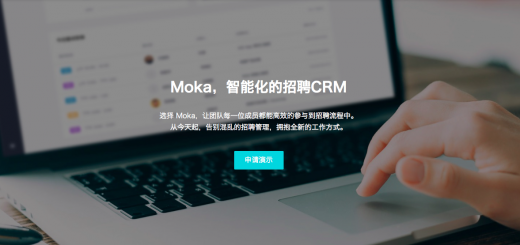 资讯
资讯
招聘管理系统Moka 获得纪源资本GGV 数千万元人民币A轮融资
据投资圈的朋友向HRTechChina爆料,五月初Moka完成了纪源资本GGV的新一轮投资,工商变更已经完成,具体金额不详(获得信息后更新)。
Moka是一款云端的智能招聘管理系统,想用一套基于SaaS架构的招聘CRM,帮助企业统一管理招聘的各项流程,想让企业更高效地招到合适的人才。其隶属于北京希瑞亚斯科技有限公司,属于轻型的ATS,主要市场对手应该是老牌的ATS服务商北森、大易和云招等服务商。
据了解,Moka创始团队来自伯克利和斯坦福,核心成员来自清华北大。创始人赵欧伦是一个90后,毕业于伯克利计算机专业,CTO李国兴为赵欧伦好友,二人曾在美国一起做过二手物品分享平台的创业项目。
此前,Moka在2015年10月份获得过峰瑞资本的660万元天使轮融资。
欢迎大家向HRTechChina爆料相关信息,爆料邮箱:xiaodao@hrtechchina.com
-
 资讯
资讯
HRTechChina专访“大鲲”:想通过即时提供“平台+个人”的按需经济模式链接企业与个人
编者注:中国人力资源科技创业访谈是HRTechChina 2017年推出的系列采访活动,我们精选行业中优秀的HRTech创业者,力争通过我们的平台把这些优秀的企业,产品,创业者介绍给大家。中国人力资源科技正处于一个快速发展的阶段,有大量的机会和需求,需要更多的优秀的创业者加入其中。我们HRTechChina 也非常愿意为这些创业者加油助威,提供我们的支持!
1
如果你希望参与,请和我们联系yudan@hrtechchina.com
作者:於丹 转载请备注文章出处
此次HRTechChina记者采访了拉勾网联合创始人&CMO鲍艾乐女士,此次采访的产品是拉勾旗下按需雇佣平台”大鲲“。大鲲专注于短期项目的雇佣与承接,1小时内对接专业人才,帮助企业低成本、高效率推进项目完成,提高专业人才的收入。目前开放的领域有开发、设计、市场/运营、产品,平台会全程提供专业化的服务和监管,保障项目的质量。
1
公司:北京拉勾网络技术有限公司
产品:大鲲
网站:https://pro.lagou.com/
1
谈及研发该产品的初衷,鲍艾乐告诉我们,作为国内领先的互联网招聘网站,拉勾见证了互联网的快速发展。而行业的发展使得企业用工需求不断增加,外包、按需雇佣等方式越来越盛行。再加上共享经济和按需经济的推动,一份不用按时打卡,不用看老板脸色的“自由人”工作方式被越来越多人追逐,越来越多具有一技之长和独立意识的专业人士加入这一行列,他们有能力服务不同的公司,渴望通过专业技能实现自己更高价值,从而掌握生活主动权。
鲍艾乐女士(图中最左)
1
所以,顺应这一趋势,拉勾推出“大鲲”,通过即时提供“平台+个人”的按需经济模式链接企业与个人。上面有大量的自由职业者,无论开发者、设计师、编程人员、营销人员,还是小型服务公司、工作室,都可以在大鲲上找到合作。“我们相信“用专业技能造就自由人生”这件事正在中国发生。创造更高效可依赖的平台,以互联网的新方式传递劳动和服务,实现专业人才的共享,让1000万专业人士在这个平台上实现财务自由,这是我们的愿景。” 鲍艾乐如是告诉记者。
1
鲍艾乐跟HRTechChina介绍大鲲时告诉记者,目前,大鲲主要针对三类企业的痛点来解决问题。第一类是企业人力不足的时候,比如说一家企业很想做小程序的微信开发,但要招一个前端至少需要一个月的时间,很麻烦,还要面试,如果直接把小程序开发外包,一个月时间都已经完成的差不多了,这是第一类需求。第二类是高并发的场景。一家电商公司,双十一期间有大量的业务需要,但不能按照时期的工作量配备人才,这一类的需求就可以外包。第三类是大牛员工的聘用。比如说一个小公司,希望找到腾讯负责千万级用户的产品大牛帮我做产品。如果想说服挖他来公司工作几乎是不可能的,但是可以跟他项目制的合作。
1
据记者了解,使用大鲲大致的流程是:项目方免费发布需求,平台将会在1小时对接项目需求,通过审核后,为企业挑选对应专家,让双方进行沟通,1天内确认合作意向,若果确定合作,甲方将会把项目的费用支付给平台,由平台托管资金,专家完成项目通过验收后,甲方可以对专家的工作进行点评。而对于专家而言,入驻平台需要完善个人主页,并提交平台审核,平台在24小时内审核完毕,未通过也会告知原因。通过后,会为专家推荐/申请项目,沟通确认合作,完成项目,通过验收,收到酬劳。
1
目前,“大鲲”将平台上的项目分为产品、设计、技术、市场和运营五个大类。每当平台上有一个项目需求,就会首先被分类,是哪个大类,就由哪个大类的项目顾问去跟踪。鲍艾乐告诉HRTechChina,“大鲲”给这些项目经理规定的时间是:一个小时之内必须响应。
1
也就是说,在这个过程中,“大鲲”平台承担了 “担保交易”的角色,每一个发布的项目、每一位申请入驻的专家必须通过平台的人工审核;甲方的预付金留存在大鲲平台上,双方可以按照约定来执行,到了不同的阶段,“大鲲”按照约定经甲方确认再来给乙方分批付款。在项目过程中,平台进行全程的专业监管,以保障项目顺利执行。
1
聊到对未来前景的看法及行业预测,鲍艾乐告诉HRTechChina:“在我看来,自由职业者是未来企业用人的方向,人与企业的关系正在发生变化,互联网的进步会把人从组织里解放出来,独立完成事情,而协作则是在互联网平台上完成。对年轻人而言,自由职业和斜杠青年也会越来越被接受。”
1
鲍艾乐也坦言,虽然现在的“大鲲”是在萌芽期,但他们希望构造一个场景,基于共享经济的原理,把互联网行业的专家的认知盈余分享出去,在公司、个人、供需双方建立联系,为彼此提供更加低成本、高诚信度的信息、服务资源。“企业可以根据自己的实际需求雇佣人才,直接触达专业人才,同时,专业人士业能充分利用了以往被浪费的个人才华,用一技之长换得认可和回报,这就是“大鲲”的意义。” 鲍艾乐同时也这么说道。
1
据HRTechChina记者了解,现阶段大鲲也不向企业抽成,没有盈利,也没有独立融资。
1
本栏目是HRTechChina 推出的中国人力资源科技创业访谈系列,如果你希望参与,请和我们联系yudan@hrtechchina.com
-
 资讯
资讯
法国招聘平台Talent.io获880万美元融资,每周为科技公司推选优秀工程师
法国创企Talent.io想要把猎聘变成一种市场生意,为优秀工程师和科技公司创造沟通的平台。日前,这家公司从原投资人Alven Capital和Ventech处获得了880万美元投资。
Talent.io起家于巴黎,目前已经拓展到柏林、伦敦等欧洲重要城市。为了顺利拓展,该公司先后收购了Webcrowd和Go Digital。工程师们准备找工作时,可以在Talent.io上注册,Talent.io负责筛查,选出最优秀的候选人。然后,科技公司每个星期会收到一封邮件,也就是Talent.io推荐的新候选人。
如果觉得候选人合适,科技公司可以和他们聊一聊。如果某个工程师超过1个月都未能找到工作,就会被平台踢除。Talent.io支持寻找全职、兼职工程师,甚至实习生。
截至目前,Talent.io已经吸引了2000多家科技公司,大多数位于巴黎,位于伦敦和柏林的分别有200家。据了解,25%的注册工程师都能通过这一平台找到新工作。
和其他招聘平台相比,Talent.io的筛选程序可能是让他们鹤立鸡群的因素。如果科技公司信任Talent.io(相信他们只筛选有价值的工程师),那么必定会不断使用这一平台。每个月,注册这一平台的工程师多达4500名,但其中只有400人能够留下。在获得本轮融资之后,Talent.io希望能把这些数字翻上10倍。
【猎云网(微信号:ilieyun)】5月16日报道(编译:蔡妙娴)
-
 资讯
资讯
劳动力短缺怎么破?没大企业那么土豪,日本中小企业瞄准了机器人
机器人对于劳动力短缺的国家来说,无疑是一大救星。记者此前曾报道过,新加坡的一些饭店曾因招不到服务员,于是找来了机器人当做外援。
其实,另一个亚洲国家日本的劳动力短缺程度,相比于新加坡而言,可以说有过之而无不及。他们也把目光投向了机器人。
长寿国家的烦恼,全世界唯一一个步入“超老龄社会”的国家
日本是一个长寿国家。2016年5月,世界卫生组织公布了新一期的全球各国平均寿命统计,日本人平均寿命高达83.7岁,连续第23年蝉联该项冠军。
长寿是福,可是长寿也有长寿的烦恼。
2016年9月27日,日本内阁府发布了《2015年日本老龄社会白皮书》:日本现有1.27亿总人口,约3392万是65岁以上人群,老龄率高达26.7%。
按世界卫生组织的评定标准,老龄率超过14%就是“老龄社会”,21%以上则是“超老龄社会”。日本在2007年便超过了21%这条红线,也是目前世界上唯一一个步入“超老龄社会”的国家。
此外,日本的老龄率还在不断攀升,预计2025年前后,日本老龄率将逾30%,2060年破40%。
雪上加霜的是,日本人的人口还在萎缩,出生率持续走低。日本的劳动年龄人口在1995年达到8700万人的峰值,此后一直呈下降趋势。
日本政府预计,今年其劳动年龄人口将下降到7600万,到2065年将仅剩4500万。
而且,日本又是一个单一民族组成的国家,并不欢迎移民,不会像美国、澳大利亚那样的移民国家,可以获得来自全世界的新鲜血液。
这样一来,一个显而易见的问题就摆到了桌面上,老龄率这么高,年轻人后续乏力,又不欢迎民,那么,谁来干活养活这个社会呢?
劳动力短缺,中小企业瞄准机器人以解燃眉之急
据路透社报道,在日本,包括建筑业、制造业和酒店服务等多个行业都饱受这个问题的困扰。由于劳动力短缺的压力,日本的中型企业纷纷瞄准了机器人及其他自动化设备。
日本中央银行的一项调查调查显示,股本在1亿日元至10亿日元之间的企业,计划在从1月开始的财年里将投资额提高17.5%,增幅刷新了历史新高。
相比之下,大企业的投资增幅则要小得多,后者本财年对投资增长的预期只有0.6%。
为什么差距这么大呢?
因为土豪有土豪的好处。有钱就能任性,大企业可以通过给工人提高工资来提升在人才市场的竞争力,还可以把生产线转移到海外市场,利用不发达国家的廉价劳动力。
与之相比,中小企业则没有这种便利。他们可运筹的空间要小很多,只能想办法去提高效率。
招聘市场的数据也显示出,中小企业对劳动力的需求更加迫切。
日本厚生劳动省(负责医疗卫生和社会保障的主要部门)数据显示,在截至2016年3月31日的财年里,员工规模在100至499人之间的中型企业,在广告上打出的新岗位招聘总数达到110万个,创5年以来的新高,接近员工规模在500人以上企业的5倍。
机器人厂商订单增长,市场需求强劲
目前,还不清楚究竟企业投资的增长当中,将有多少比重投资于自动化技术,但出售该类设备的企业表示,他们的订单量在持续增加。这从侧面印证了市场需求的增长。
路透社给出了一个十分有力的证据,今年一季度,许多日本机器人厂商迎来了,数个季度以来的第一次营收增长。
当然,在这些增长当中,不仅有来自日本的订单,中国市场的需求也拉动相关日企的效益。
以上是市场的反馈,从官方的表态里我们也可以窥测到一些迹象。
日本政府也表示,预计企业将会花费更大的投资用于提高企业效率。显然,在提升企业效率方面,提升自动化程度是重要手段之一。
日本经济贸易产业省(METI)产业政策局主任Seiichiro Inoue赤裸裸地指出了原因所在:
用于提高运营效率的资本支出比例之所以升高,是因为劳动力短缺。
Seiichiro Inoue表示,日本政府预计,本财年用于自动化设备的投资额将会上扬。
如果企业的投资计划能够顺利展开,那么对日本经济来说,无疑是一大利好,解决劳动力短缺的同时,又能提振企业活力。
据日本业内人士表示,日本中小企业对机器人的使用并不多,也就是市场上有很大的潜在需求。
“日本90%以上的企业属于中小型企业,但当中大多数都没有使用机器人。”川崎重工业公司机器人部门高管桥本靖彥(yasuhiko hashimoto)。
川崎是一家老牌制造业公司,拥有超过45年的机器人研发历史,并在全球范围内安装了超过12万台机器人。
在川崎的诸多工业机器人当中,有一款是拥有双臂、170厘米高的高大机器人。桥本靖彥表示,该机器人颇为畅销,因为它能够适用于电子厂商、食品加工商和制药公司等各种工业用途。
建筑设备制造商日立建机公司表示,它的程控挖掘机正收到大量的问询。该机器使用GPS定位系统,能凿出精确到厘米的沟,并能缩短大约一半的挖掘时间。
该公司的高管透露,预计公司的业务量将会在本财年下半年增加,届时很多企业都会订购施工设备来开展项目。
今年一季度,“喜迎丰收”的机器人厂商还有发那科。该公司的季度营收同比增长了7.9%,七个季度以来首次取得增长。
与此同时,安川电机公司在第一季度,营收同比增长5.1%,这是其五个季度以来首次录得增长。
机器人等自动化设备不仅渗透到制造业和建筑业,还吸引了房地产开发商、食品饮料制造商和连锁酒店的兴趣。
举例来说,位于东京迪士尼附近的Hen na Hotel(也称Odd Hotel)酒店,将自己标榜为机器人酒店。据其经理人Yukio Nagai称,酒店有100个房间,却只需两三个员工就能运营,因为它使用140个不同的机器人和人工智能技术,来为客人服务。
酒店的每个房间都配有一个蛋形机器人,名叫Tapia。Tapia可以利用AI进行面部识别,和回应客人的语音请求。它能够叫你起床,能够管理你的日程,能够控制电视机、空调等联网设备。其它的机器人能够扛包和倒垃圾。
Tapia开发商MJI Co总监Sayaka Chiba介绍: “一开始,我们出售这款产品是针对家居用途,但现在很多企业也来咨询。包括银行、医院和酒店,都有兴趣将Tapia用于接待工作,并与顾客进行沟通。”
同时,她还指出Tapia受到企业欢迎的原因:“企业称它们有意使用Tapia是因为劳动力短缺。养老院也有意采用。”
她说:“我们将会继续出售这种家用机器人。各类企业表现出的采用兴趣表明,市场已经多少发生了改变。”言下之意,她认为,Tapia的热销并不是偶然,而是整个市场对机器人的需求正在越来越强烈。
其实,不单是日本,中国、韩国都在面临老龄化的问题。日本的今天可能就是中国、韩国的明天,虽然中韩老龄化问题可能不会像日本那么严重,但是日本的做法依然值得中韩两国借鉴。
有人说,机器人会让我们享受从工作中解脱的自由。这份自由至少我们现在还无福消受。可是机器人让我们能从劳动力短缺的困局中跳出来,让机器人陪年轻人一起扛起“越来越老”的社会,为压力山大的年轻人分担一些压力,也算是很大的欣慰了。
来源:36氪,作者:梁风,如若转载,请注明出处:http://36kr.com/p/5075033.html
-
 资讯
资讯
“一带一路”风起,Silk Ventures 成立 5 亿美元基金,要帮更多海外创企进入中国
一直以来,中国创企在立足本土市场后,都想“走出去”看看外面的世界。与此同时,受国内当前广阔的市场前景和需求等红利影响,越来越多的国外创企也想“走进来”分一杯羹。日前,“一带一路”论坛在北京召开,丝科创投(Silk Ventures)在论坛上宣布,已成立一笔 5 亿美元的基金,将用于帮助成熟的海外技术公司在中国发展。
丝科创投成立于 2015 年,是一家英国背景的风险投资公司,总部位于伦敦,在北京、深圳、美国门洛帕克也设有办事处。关注领域包括 AI、物联网、金融科技、机器人、医疗技术等。丝科创投目前扮演双向角色,一方面帮助中国创企拓展海外市场,另一方面也帮助海外企业进军中国。
值得注意的是,此次 5 亿美元的基金有一半来自深圳国资委,深圳国资委还将担任基金 LP 和战略合作伙伴。另一半资金来自一些战略投资企业。丝科创投将在今年 7 月宣布其第一笔投资,余下战略投资企业名单也将在 7 月公布。
此外,丝科创投也将成为深圳贸易投资部门在欧洲的总部,丝科创投将帮助其在伦敦金丝雀码头开设办事处。通常来说,海外公司想进入中国会受制于一些监管障碍,作为一家海外背景的风险投资公司,丝科创投一直以来和政府关系密切,其思路也是通过直接和政府合作,来简化流程。
作为阿里巴巴上市前的顾问、前保诚国际亚洲区负责人,丝科创投新的风险合伙人 Brewer Stone 表示:“在中美两国充当了多年桥梁角色后,我充分了解其中的挑战,以及在和深圳国资委合作后我们能带给国外创企的机遇。丝科创投将和真正有影响力的科技企业合作,我们将为其提供持续性的支持。”
早前 曾报道过 Atlas,这是由美国在线支付公司 Stripe 发起的一款创业启动工具,思路是帮助初创企业快速、便捷地将服务拓展至美国市场。Atlas 提供的服务包括注册公司、招募合作伙伴、建立银行账户、法律资源、在线支付交易等。
近年来,也有一些基金、公司在从事类似丝科创投的工作。去年,中国投资公司 Cocoon Networks 成立了一个 7.15 亿美元的基金,旨在帮助欧洲公司在中国发展。旧金山风投公司 IDG Ventures 在中国的业务部门 IDG 资本,也就此目的和硅谷风投公司 Breyer Capital 联合发起了一笔 10 亿美元的基金。硅谷 SparkLabs 也和国安双创学院合作,在中国推出了创业孵化器,关注中国创业公司的海外业务拓展。
来源:36氪 ,作者:揭妤,如若转载,请注明出处:http://36kr.com/p/5074999.html
 扫一扫 加微信
hrtechchina
扫一扫 加微信
hrtechchina
 资讯
资讯
 资讯
资讯
 资讯
资讯
 资讯
资讯
 资讯
资讯
 资讯
资讯
 资讯
资讯
 资讯
资讯
 资讯
资讯
 资讯
资讯





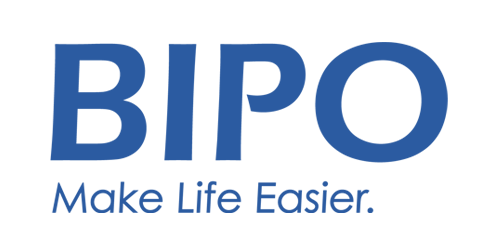
 扫一扫 加微信
hrtechchina
扫一扫 加微信
hrtechchina

